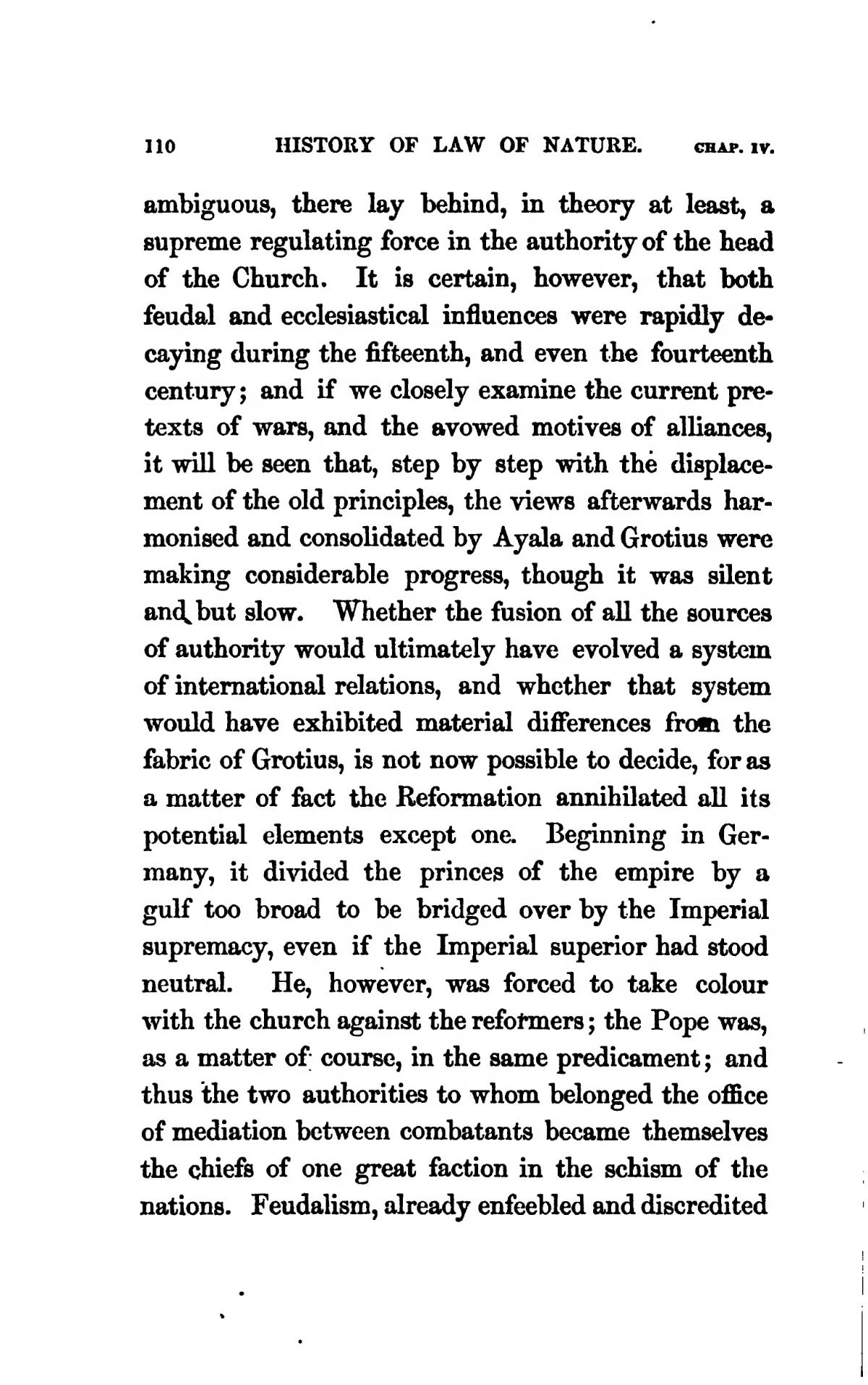ambiguous, there lay behind, in theory at least, a supreme regulating force in the authority of the head of the Church. It is certain, however, that both feudal and ecclesiastical influences were rapidly decaying during the fifteenth, and even the fourteenth century; and if we closely examine the current pretexts of wars, and the avowed motives of alliances, it will be seen that, step by step with the displacement of the old principles, the views afterwards harmonised and consolidated by Ayala and Grotius were making considerable progress, though it was silent and but slow. Whether the fusion of all the sources of authority would ultimately have evolved a system of international relations, and whether that system would have exhibited material differences from the fabric of Grotius, is not now possible to decide, for as a matter of fact the Reformation annihilated all its potential elements except one. Beginning in Germany it divided the princes of the empire by a gulf too broad to be bridged over by the Imperial supremacy, even if the Imperial superior had stood neutral. He, however, was forced to take colour with the church against the reformer; the Pope was, as a matter of course, in the same predicament; and thus the two authorities to whom belonged the office of mediation between combatants became themselves the chiefs of one great faction in the schism of the nations. Feudalism, already enfeebled and discredited
Page:Ancient Law.djvu/123
110
HISTORY OF LAW OF NATURE.
CHAP. IV.
